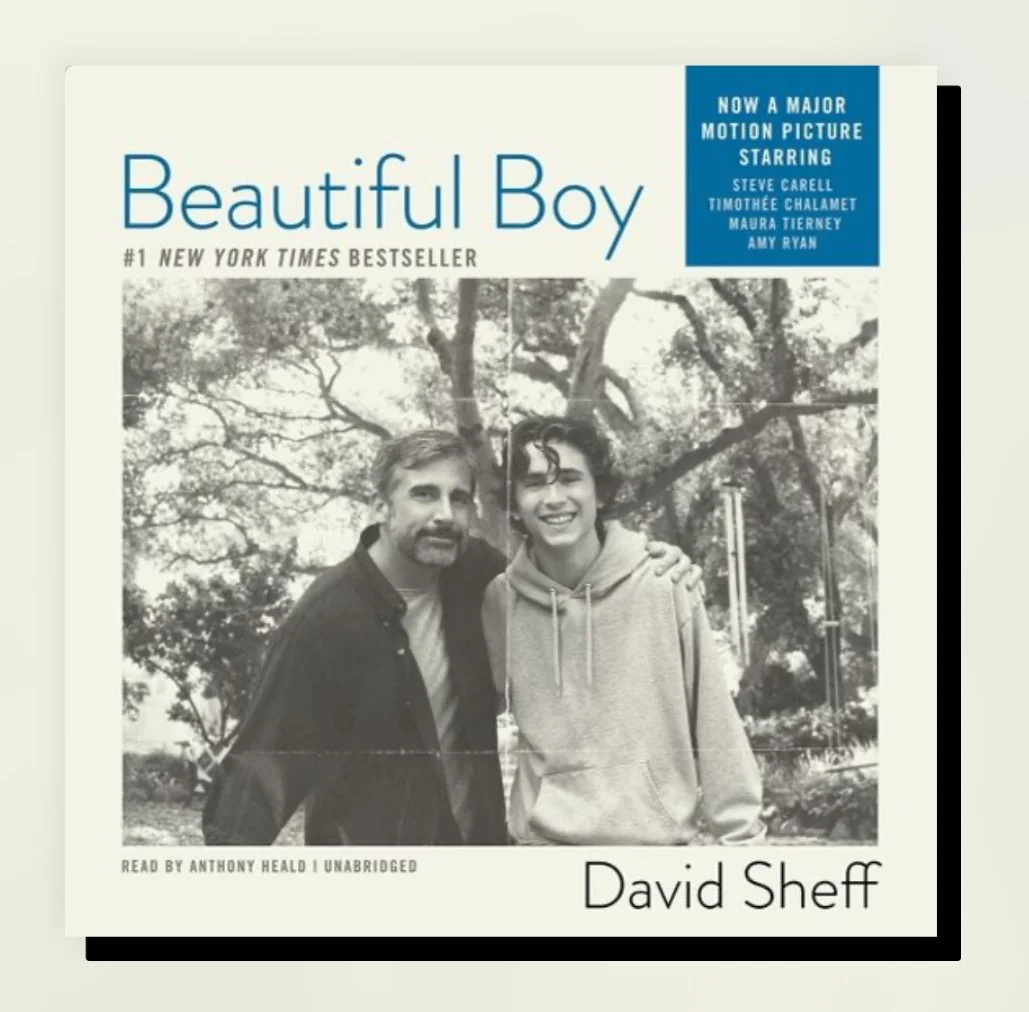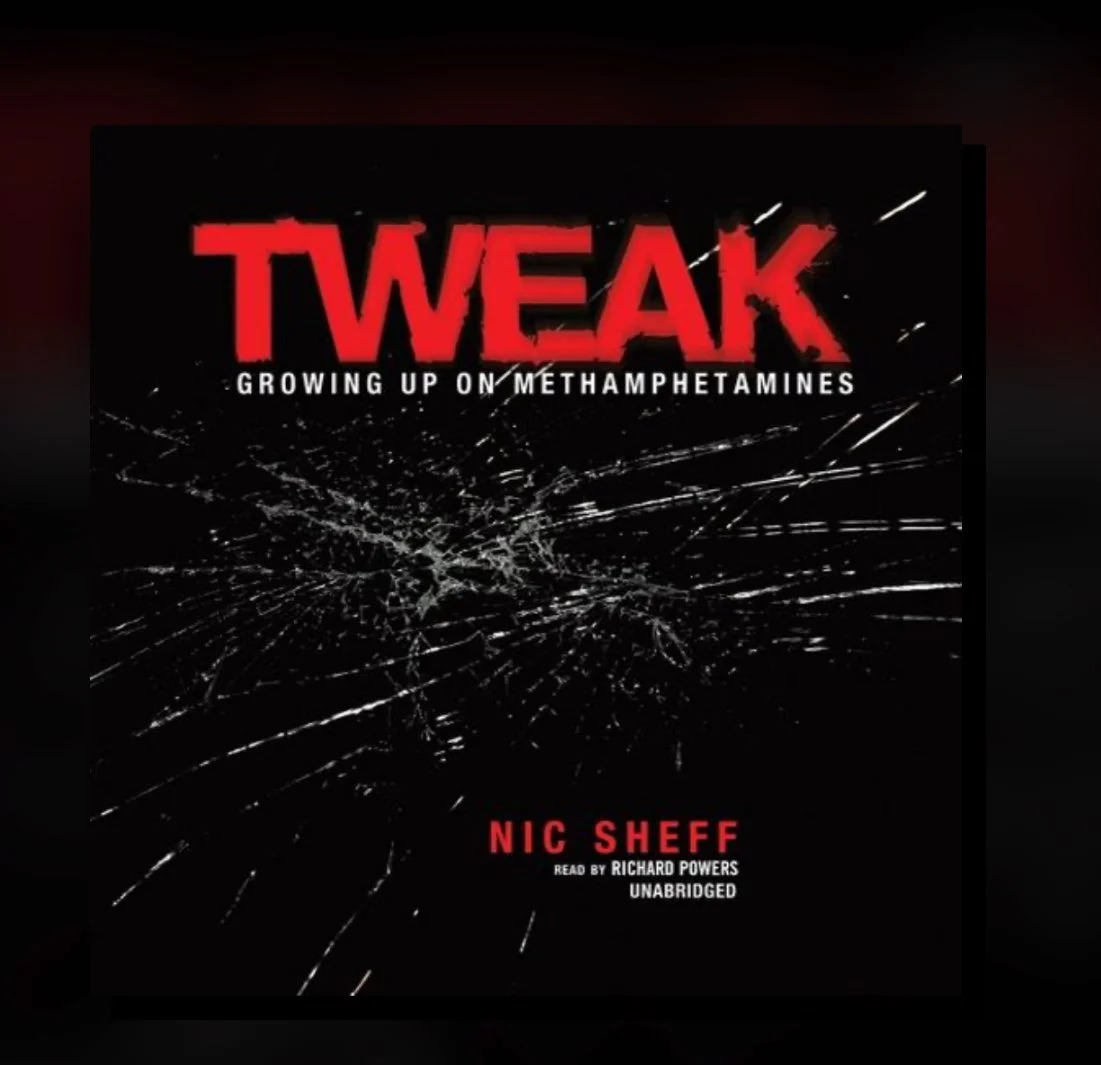Beautiful Boy (2008) David Sheff
David Sheff, a professional writer and a father, combines his artistic story-telling skills with his first-hand experiences as he narrates his journey of his son’s drug addiction. Sheff describes the contradictions that belie this experience such that the best way to help his son is to ignore all of his instincts as a father and not help his son. Like most parents and even other family members who go through this, Sheff ruminates about what he did wrong, how he missed the signs, and what he could have done differently to prevent this as he sits among the chaos and the constant crisis of his son’s addiction. Eventually, after cycling through relapse and recovery many times, the words of Al-Anon (“I didn’t cause it. I can’t control it. I can’t cure it.”) start to sink in and Sheff starts to see how he has developed a parallel addiction to his son’s addiction–how his participation in these cycles of trying to ‘save’ his son, Nic, has negatively affected his health, his marriage, and other family dynamics. He recognizes his fears, his grief, and his limitations; as well as how they have already been playing out. And he is able to cultivate the heartbreaking boundaries that ultimately shift his focus and serve to hold Nic accountable and protect his own self and the rest of his family. Regardless of the hurt, the rage, the anxiety, and trauma of it all, remains the unconditional love that he has for his son.
This book was made into a movie about 10 years after publication. I did watch it and it appears to be more of an amalgamation of this book and the son’s memoir (“Tweak: Growing Up on Methamphetamines” by Nic Sheff) and honestly barely scratches the surface. Not a bad movie, but they tried to do too much and it doesn’t do either book justice (I’m currently reading the latter–stay tuned…)..
How did I hear about this book: Google search
Would I recommend it to colleagues: Absolutely
Would I recommend this to clients: Yes, I think it can be helpful for those clients of mine who are amidst this cycling through their loved one’s addiction. Sheff even notes of the feedback he continues to receive from sharing his story in a brief magazine article. It’s important to not feel so alone, as well as to get some insights (sometimes even some hope) of what it might be like to come out the other side.
How do I apply this content to my work: I am a licensed addictions counselor. I provide support both to people struggling with addiction/recovery from drugs and alcohol, and I also provide support to their family members. Research has done a lot to strengthen treatment approaches to increase recovery statistics (even since this book was published in 2008). And while supports like Al-Anon, family days or family weekends in treatment centers, and therapy have been available to family members, I do still feel like this space is lacking support. As Sheff highlights, a parallel addiction develops in the family members that needs treatment as well and the addiction causes harm to the entire family system and everyone in it. And the thing I often tell my clients (and/or their family members) is that addiction is a family disease and everyone in the family needs to do the work to heal in order to support their own recovery, as well as the recovery of the addict/alcoholic. I validate that this experience is traumatic and when it comes to trauma, it’s not your fault that it happened to you, but it is your responsibility to do the healing; all of the amends in the world will not heal the fear, sadness, anger, hurt, rage, anxiety, etc. that you may be feeling.
If you need help healing from a loved one’s addiction in the state of Washington, I may be able to help. Click here to contact me.
Disclaimers: These reviews are based on my own personal experience reading these books and do not reflect on the book’s author or publisher. I have not received any commissions or other incentives to promote my reviews. My reviews express my own unbiased opinions.




